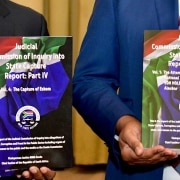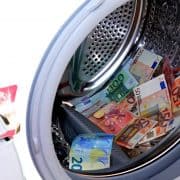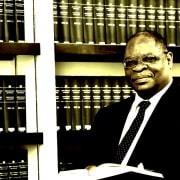|
Getting your Trinity Audio player ready...
|
By Rick Messick
First published on the Global Anticorruption Blog
A public servant who accepts a bribe can do with it as he or she pleases. Put it in a bank, sell it, give it away, or even bet it at the roulette table. What if the bribe-taker is caught, though, and government wants to recover the bribe? Does it matter what the bribe-taker did with it? It does, and greatly, especially for large bribes stashed in another country — precisely the cases the UN Convention Against Corruption (UNCAC) addresses.
Article 57(3) of the convention requires the state where the proceeds of a bribe are discovered to return them to the state seeking them if the requesting state “reasonably establishes its prior ownership” of the bribe. If the recipient stashed the bribe in Singapore, the UK, or another common law country, the requesting state is in luck. If, on the other hand, it was squirrelled away in a civil country, the requesting state is likely not so lucky.
It all depends upon the quirky national laws governing who owns the proceeds of a bribe. In common law countries, bribe-takers do not own the proceeds. Rather, courts say they hold the proceeds for the benefit of the government for which they work. This ‘constructive trust’ doctrine, as it is called, is a legal fiction, for the bribe-taker never had a moment’s thought that he or she was accepting the bribe for the government’s benefit.
As fictional as it might be, the doctrine proves quite valuable when a country requests the return of bribe proceeds from a common law jurisdiction. When this is the case, the constructive trust doctrine in the requested state kicks in. Its law considers the requesting state to be the owner of the proceeds, leaving the requesting state with nothing to do to meet the ‘reasonably establishes its prior ownership’ requirement of article 57(3). It’s done as a matter of law and return is automatic.
Requesting states enjoy other advantages when seeking the return of bribe proceeds from a common law state. Suppose the bribe-taker has given the money to his or her children. Since it was never the bribe-taker’s to begin with, the bribe-taker could not give it away. The constructive trust doctrine requires the children to hand it over to the requesting state on demand. Even better for requesting states is if the recipient has gambled with the bribe money. The constructive trust doctrine holds that any money earned through use of the bribe proceeds belongs to the requesting state — so any winnings go to the requesting state too.
And if the bribe-taker wasn’t so lucky at the casino? Or lost it some other way? No worry, at least for the requesting state. Under the constructive trust doctrine, the bribe recipient must still make the requesting state whole for the full amount of the bribe.
Requesting states seeking the return of bribe proceeds parked in a country whose laws follow European civil law aren’t nearly so lucky. As the Stolen Asset Recovery Initiative’s 2015 volume Public Wrongs, Private Actions explains, civil law countries have no analogue to the constructive trust doctrine. While they have procedures for reclaiming wrongfully acquired property (‘action en revendication’ in France, ‘vindikationsklage’ in Germany), for reasons only a legal historian could explain, in many countries the procedures remain limited to the return of the actual asset. If the asset changes form in any way, the procedures do not apply. In some countries, the transformation rule is applied so strictly that if the bribe was paid in cash and the recipient changes the cash into different bills or deposits it in a bank, the procedures cannot be invoked. And profits earned on the assets while possessing it are never recoverable.
UNCAC’s drafters recognised that different national laws treat bribe ownership differently and many do not characterise a government’s interest in the bribe’s return as ‘ownership’. So to ensure bribe proceeds were recoverable, they added a proviso to article 57(3) requiring a requested state to return bribe proceeds when it “recognises damage to the requesting State Party as a basis for returning confiscated property.”
In other words, if the requested state’s law does not consider the bribe proceeds to be ‘owned’ by the requesting state, the proceeds can still be recovered under 57(3) so long as the requested state’s law treats the receipt of a bribe as an event causing injury for which monetary damages can be claimed.
The legislative guide to UNCAC explains the provision was included for cases such a bribe receipts, ones where “a requesting State party may not be able to establish prior ownership or claim [because] . . . the proceeds are not funds to which the State was ever entitled” (para. 781). That is, the law of the requested state may not recognise the constructive trust principle or other rule assigning ownership of bribe proceeds to the requesting state.
The damage recovery proviso does not quite fill the gap, however, for not all states recognise bribes as causing monetary damages. Indeed, in a case involving a very large bribe the requested state is refusing to return it for precisely this reason. The requested state’s law does not recognise bribery as a wrong for which damages can be recovered. Requesting state representatives suspect a negotiated return may be possible, but they also suspect this will occur only if the requested state is granted a share of the proceeds as part of the deal.
Even when the requested state recognises damages for bribery, recovery may not be straightforward. Under American law, bribe victims are entitled to file for compensation if a bribe-taker is convicted or pleads guilty to the offence of bribery. While victims typically ask for damages equal to the amount of the bribe, courts have rejected such claims, recognising that the bribe amount measures the defendant’s gain, not the victim’s loss. For a bribe victim to be compensated for the harm a bribe caused, the victim must present a careful assessment of what sales were lost thanks to bribery, how the bribery affected profits, and so forth — an often time-consuming and expensive effort.
Requesting states should not be denied recovery because the requested state doesn’t recognise damages from bribery. Nor should requesting states be forced to undertake a lengthy and costly process to prove it was damaged to recover the proceeds. The recovery of bribe proceeds should be easy, cheap, and swift.
Not every party to UNCAC need buy into the legal fiction of a constructive trust. But all should have bribe ownership laws that produce the same result in asset recovery cases. This would ensure the speedy recovery of bribe proceeds and that recovery could be had from anyone to whom the proceeds were gratuitously transferred.
Oh, and any winnings at the gaming table should be recoverable too. No reason to leave money on the table.








